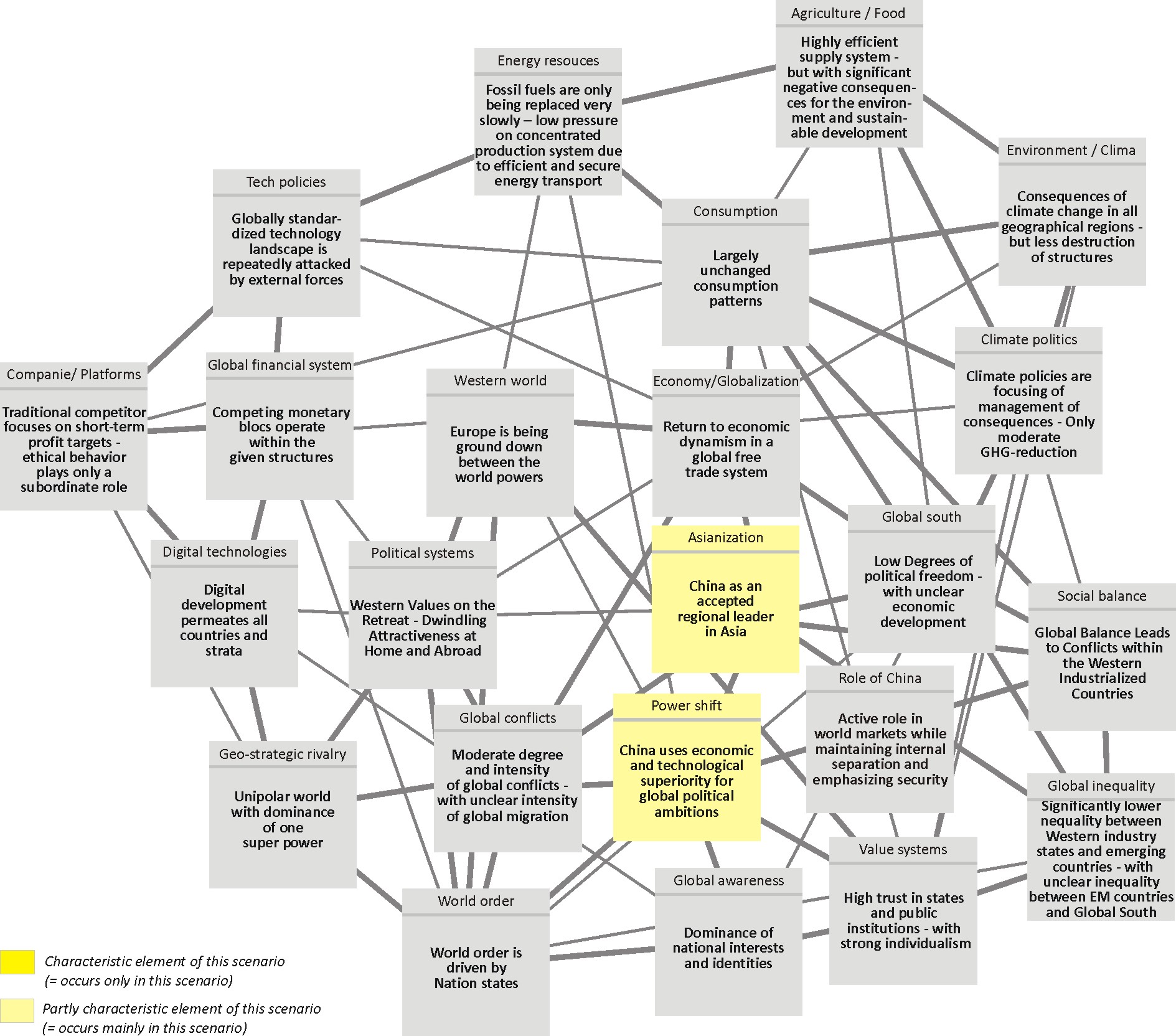China rules
New role models from the East
- China opens up and beats the inert Western countries (which face several internal conflicts) with their own weapons
- The world order and the global financial markets are more and more dominated by the new super power (and Asian hegemon)
- Western values are on retreat – dominance of national interests and identities
- High economic dynamism despite significant restrictions on free world trade
- Climate policies are not consequent – short-term political and economical interest still dominate
The Asian century is above all a Chinese century – and it has come faster than many in the traditional industrialized countries could have imagined. Economic success as well as the high efficiency of the state system supported by modern technologies make China the new “role model“, while human rights and „Western“ values such as freedom, the rule of law or tolerance are no longer considered contemporary in many countries and societies. Especially in Asia and along the new Silk Roads, China‘s quasi-hegemonic role is accepted or at least not openly questioned.
China‘s increasing dominance is accompanied by the loss of economic privileges in the Western industrialized countries. There, internal social distribution struggles are occurring and internal conflicts are increasing, allowing illiberal and semi-authoritarian forces to gain power. The United States are retreating from many global conflicts while Europe is too weak to have a weighty say in the new world order. China‘s central interest is a stable global development so that overarching conflicts are avoided, while there could be significant conflicts within individual states or regions, including corresponding internal migration flows. Democratic movements in states with authoritarian or illiberal systems are coming under intense pressure – civil society structures can be established only in state-controlled niches, if at all.
Decarbonization and decentralization of the energy industry are on the agenda, but the massive industrialization of the 2020s and 2030s is in many cases still based on fossil fuels. As a result, the consequences of climate change are being felt all over the world, albeit without questioning state structures in the regions most affected. However, since global politics is primarily understood as a balancing of national interests, climate policy is still focused on managing short- and medium-term consequences.
The global economy is characterized by a free trade system, largely unchanged consumption patterns and companies that are focused on short-term profit targets and for which ethical behavior plays only a minor role. However, the traditional, Western financial system competes with alternative currency blocs, so that a true, global dynamic does not emerge. The agricultural and food industries are also dominated by a belief in technology and efficiency thinking, while sustainability is hardly taken into account.




